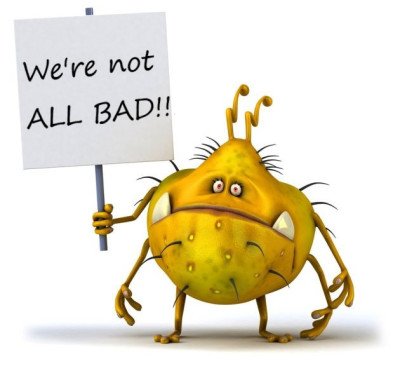LETS BE FRIENDS WITH GOOD BACTERIAS

Good bacteria, also called probiotics, are similar to bacteria that reside naturally in your body. Probiotics may be beneficial to your health, and they are available in yogurt or in various dietary supplements. Probiotics have also been formulated into suppositories and creams for specific uses. Although there is some clinical evidence that the different types of good bacteria can address certain medical conditions, you should not use probiotics or any other dietary supplement without first consulting your doctor.
Lactobacillus Acidophilus and Other Lactobacilli
There are more than 80 species of the Lactobacillus genus of probiotics. One of these species, acidophilus, is the most frequently used good bacterium, according to the University of Maryland Medical Center. Lactobacillus acidophilus, usually abbreviated as L. acidophilus, resides in the intestines where it helps in the digestion of food. As part of the digestion process, L. acidophilus produces lactic acid and hydrogen peroxide, which create unfavorable conditions for the growth of harmful bacteria. One way to get L. acidophilus in your diet is to eat yogurt that contains active cultures of this probiotic.
Bifidobacterium Bifidum and Breve
If you carry the bacterium Helicobacter pylori in your stomach, you are at increased risk for stomach ulcers. Researchers have used a mouse model to show that a particular strain of the probiotic Bifidobacterium bifidum can help to repair stomach ulcers caused by Helicobacter pylori. The research results appeared in the February 2011 issue of Applied and Environmental Microbiology. Another probiotic in this genus, Bifidobacterium breve, may be useful in the treatment of childhood constipation, according to a study in the February 2011 issue of Nutrition Journal.
Streptococcus Thermophilus and Salivarius
The probiotic Streptococcus thermophilus is a starter culture in the manufacturing process of yogurt, mozzarella cheese and other fermented dairy products. One of the principal therapeutic uses for S. thermophilus is for relief of the abdominal cramps, diarrhea, nausea and other gastrointestinal symptoms associated with lactose intolerance. Another probiotic in the Streptococcus genus, Streptococcus salivarius, may improve symptoms of halitosis, the medical term for bad breath, according to a 2006 clinical study published in The Journal of Applied Microbiology.
Bacillus Coagulans
The Bacillus coagulans bacterium is a probiotic available as a dietary supplement that people use for various health concerns. Bacillus coagulans may be useful in the treatment of gastrointestinal disorders such as diarrhea associated with an antibiotic regimen, traveler's and children's diarrhea, inflammatory bowel disease and irritable bowel syndrome. The supplement may also be useful in preventing respiratory infections and enhancing their immune response. However, Natural Medicines Comprehensive Database has concluded that there is "Insufficient Evidence to Rate the Effectiveness" of Bacillus coagulans for any of those therapeutic applications.